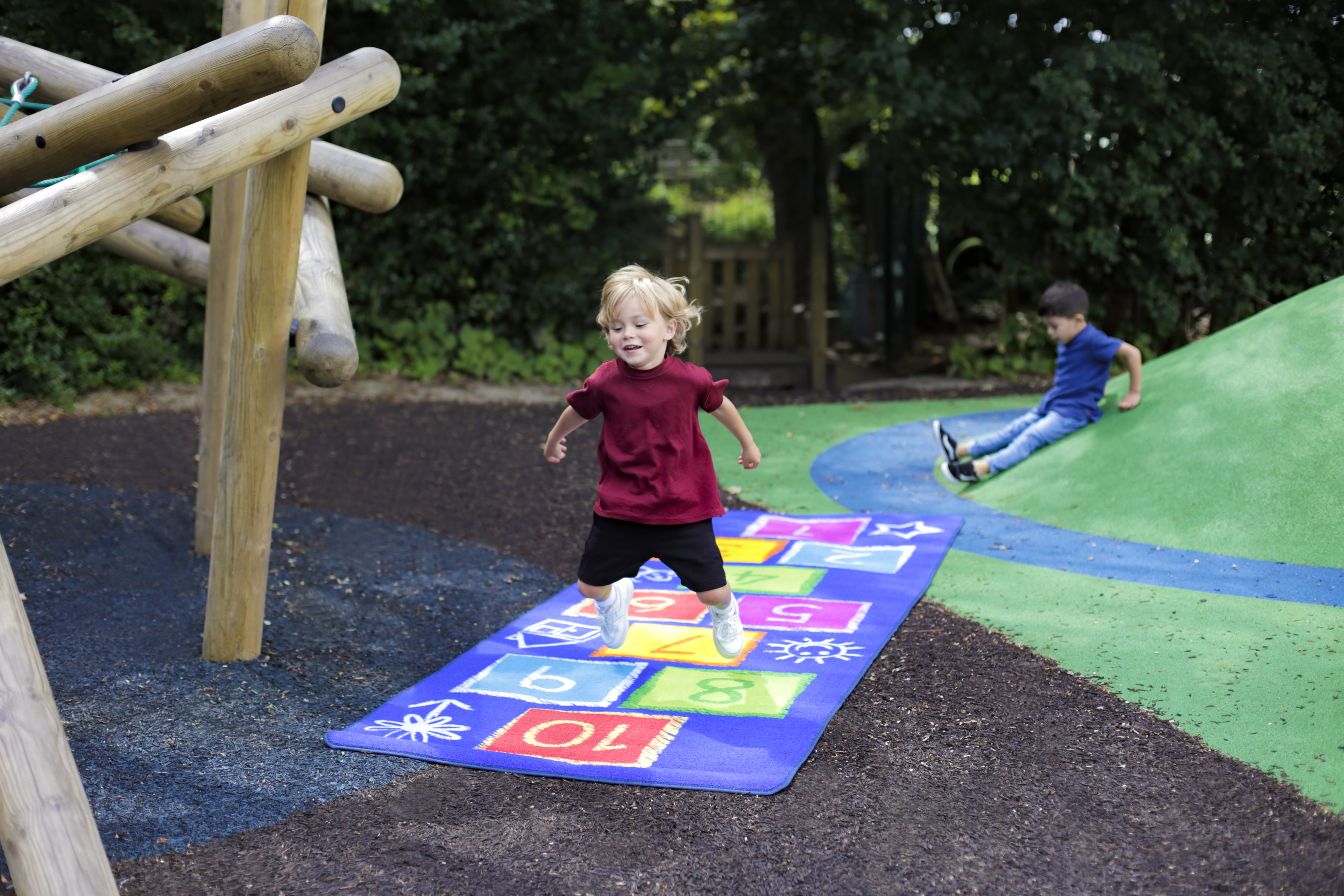

Learning Through Play
During early years development encouraging children to learn through play can be a great way to teach all seven areas of the EYFS framework. Learning through play is an excellent way to encourage children’s natural curiosity about the world around them and channel that interest into constructive childhood development.
Learning through play helps to build a child’s confidence, teaches them how to interact with and relate to others, and learn how to find solutions to problems. Effective learning through play sets children on the path to lead happy, fulfilling lives.
What is learning through play?
From birth children make sense of the world around them through play – babies playing with cuddly toys, rattles and games of peek-a-boo are their way of engaging with and learning about their surroundings. As children reach preschool age and early primary years they physically develop through sand play, learn to sort and construct with building blocks, and become aware of our society and social interactions through dress up and role playing games.
Children develop and learn at different rates; hands on learning through play allows each child to exert agency over their own learning while the teacher takes on a more guiding role, allowing children to ultimately make their own decisions and learn from them through guided play rather than being instructed as to what to do.
Learning through play is key to setting children on the path to become life-long learners, not just in a school setting, but in their everyday lives as well, as it allows for deeper learning which connects the lessons learnt to the world around them. In the right environment learning through play allows children to connect with the world and kick-start their learning experience in a positive and engaging way.
The five characteristics of learning through play
Five characteristics have been identified as key to optimal learning through play. While joyful, meaningful and actively engaging experiences are necessary in learning through play, the addition of iterative and socially interactive experiences allows for even deeper, more effective learning.
Joyful experiences
Learning through play is fun! Experiences which are enjoyable are more likely to ensure children are engaged, happy and likely to remember what they are learning long-term. It is important to bear in mind that experiences don’t need to be joyful all the time; it’s natural for children to experience frustration over difficult tasks, however, the satisfaction of overcoming these challenges can in itself result in joy.
Meaningful experiences
Children learn best when they are able to connect the lessons they are taught to real life experiences. Shifting away from simple memorisation means children are more likely to remember what they have learnt in the future as well as being more actively engaged in the learning process.
Actively Engaging experiences
Self-directed, discovery-based techniques support a deeper conceptual understanding. Actively engaging in activities not only ensures children pay attention to the lesson they are learning, it also makes it more likely that they will retain the information they learn.
Iterative experiences
Creating a safe space in which children can explore and experiment, and learn from their mistakes, develops their critical thinking and encourages children to persevere and find different solutions to problems. Iterative experiences in learning through play also help strengthen critical thinking and scientific reasoning, vital skills which will aid them throughout their entire academic career.
Socially Interactive experiences
Learning how to express their own thoughts and feelings and be mindful of others’ is a vital skill for children to learn. Experiences that are socially interactive encourage children to cooperate with others and can also aid in the teaching of skills such as critical thinking and coping with challenges in later life.
Benefits of learning through play
The most beneficial aspect of learning through play is its ability to encourage children’s interest and motivation in the learning process. Learning through play is a wonderful way to create positive learning experiences from the very start of children’s academic lives, setting them on the path to become keen learners.
Learning through play is not only a great way to begin the teaching of academic lessons, but also the teaching of fundamental life skills. Learning through play encourages exploration, trial and error, and collaboration with adult figures as well as peers. This approach to educating children benefits them in all aspects of their lives and ensures their process of learning is both fulfilling and rewarding.